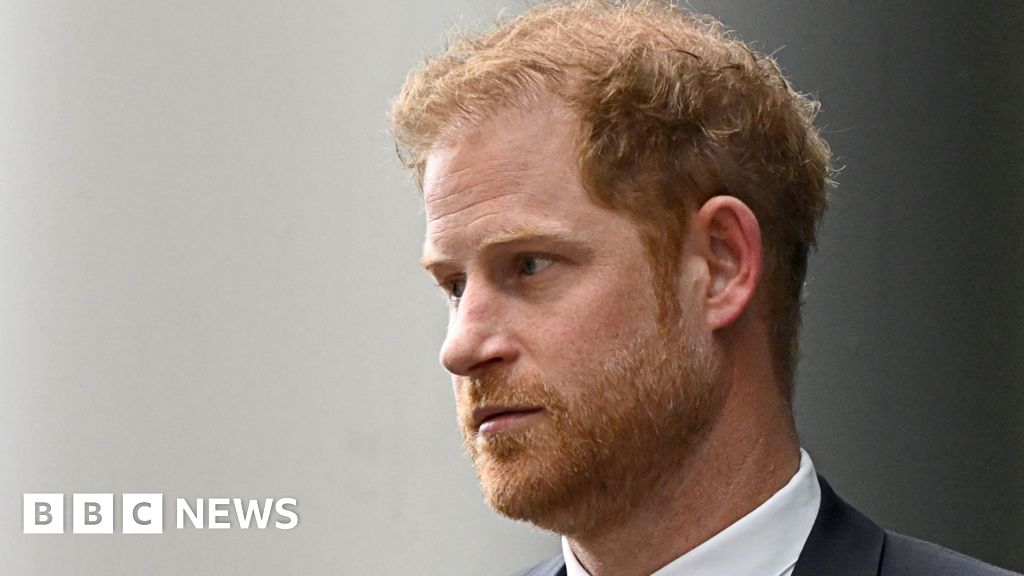ARTICLE AD BOX
By Mark Savage
BBC Music Correspondent
Image source, EPA
Image caption,Shape of You won the Grammy Award for best pop solo performance in 2018
Ed Sheeran faces a wait of "days and weeks" to learn the outcome of a High Court trial over his hit Shape of You.
The star has been accused of copying part of the song from another artist.
In closing arguments, grime artist Sami Chokri's barrister said there was an "indisputable similarity between the works". But Mr Sheeran's lawyer said the case against him was "so strained as to be logically unintelligible".
Mr Justice Zacaroli said he would "take some time to consider my judgment".
The 11-day trial ended on Tuesday. Ian Mill QC, representing Mr Sheeran, said it had been "deeply traumatising" for the star and his co-writers, Johnny McDaid and Steve Mac.
He described the dispute as "terribly, terribly unfortunate" and argued that the case "should never have gone to trial".
The singer, who has attended the court throughout, listened attentively to the closing arguments with his hands clasped together. During the trial, the superstar has been described as a "magpie" who "borrows" ideas from other artists.
'Evasive testimony'
The dispute revolves around similarities between Shape of You and Oh Why by Mr Chokri, who performs under the name Sami Switch.
The contentious part is the "Oh I, oh I, oh I" hook that follows the chorus in Shape of You. Mr Chokri and his co-writer Ross O'Donoghue say it is almost identical to the chorus of their song, which was released two years earlier.
Warning: Third party content may contain adverts
Their barrister Andrew Sutcliffe QC suggested the chances of the two songs being written independently were "minutely small" and accused Sheeran of "inconsistencies" and "evasiveness" in his testimony.
Mr Sutcliffe also claimed "material documents" linked to the writing of Shape of You "have been lost or deleted, with no adequate explanation".
Mr Sheeran and his co-authors said they had disclosed all relevant material at their disposal.
'Songwriting genius'
The court heard how Shape of You was written "extraordinarily quickly" in October 2016, with the basic track completed in under an hour.
Mr Sutcliffe claimed this meant Sheeran had entered the studio with the melody from Oh Why "consciously or unconsciously in his head".
"Such speed is indicative of copying," he said in a written closing statement.
Image source, PA Media
Image caption,Sami Chokri has described the High Court case as "the worst few weeks of my life"
Mr Sheeran's lawyer disagreed. "Speed is indicative of the genius of Mr Sheeran and his ability to work at a speed no-one else can," he told the court.
He added that all three writers "were categorically clear that they went into the writing session" with "no preconceived ideas as to whatever it was that they would write that day".
Mr Mill also argued that the similarities between the two songs were too "generic" to be protected by copyright.
"They comprise, in substance, the use of the first four notes of the minor pentatonic scale combined with the use of octaves and harmonies in a vocal chant," he argued.
However, Mr Sutcliffe argued that Oh Why's chorus was "extremely memorable" and an "earworm".
If Mr Sheeran did not consciously copy it, he said, a likely explanation was that it became "part of the echo chamber of references, songs and ideas that [he] holds in his mind, which re-surfaced in October 2016 without him realising it".
'Concerted plan'
At the heart of the trial was the issue of whether Sheeran had ever heard Oh Why. On the witness stand, he and his co-writers all denied prior knowledge of the song, saying they only became aware of it when the legal proceedings began.
The defendants insisted Mr Sheeran would have had the chance to hear it, describing a "concerted plan" to get the track into his hands in the hope of an endorsement.
To that end, they promoted Oh Why to several people in Sheeran's circle, although not the star himself.
Giving evidence, Mr Chokri said he was certain one of them would have played Oh Why to the musician - but "I can't tell you exactly which because I don't know".
Image source, Reuters
Image caption,Sheeran's writing partner Johnny McDaid is also a member of chart-topping band Snow Patrol
Mr Sutcliffe added that the chance that Sheeran was not aware of Mr Chokri in 2016 was "vanishingly small" because they had both appeared on YouTube channel SBTV in 2010, they shared friends, and Mr Chokri had tweeted him and allegedly met him.
Mr Mill countered that there was no evidence that anyone had ever played Oh Why to Ed Sheeran.
Furthermore, he noted that no-one who had been sent the track had been specifically asked to pass it on to the star.
He claimed there were "hundreds of videos" on SBTV that Sheeran "never saw or watched", and that Oh Why itself had never featured on the channel.
The implication that the star had "remembered, followed and sought out Sami Switch on another platform" six years after they had appeared on SBTV was a "preposterous jump", he said, adding: "It is quite clear from all the evidence that the promotion of Oh Why was an absolute failure".
Payments frozen
Shape of You was the biggest hit of 2017 and remains the most-streamed song of all time on Spotify, with more than three billion plays.
It earns Mr Sheeran, Mr McDaid and Mr Mac about £5m a year, the court heard, despite almost 10% of the payments being frozen due to the ongoing dispute.
The case dates back to 2018, when the writers asked the High Court to declare they had not infringed Mr Chokri and Mr O'Donoghue's copyright.
In July 2018, the pair issued their own claim for "copyright infringement, damages and an account of profits in relation to the alleged infringement".
As the trial ended on Tuesday, Mr Justice Zacaroli told both sides he would deliver his judgment "as soon as I can".
Follow us on Facebook, or on Twitter @BBCNewsEnts. If you have a story suggestion email entertainment.news@bbc.co.uk.

 2 years ago
26
2 years ago
26








 English (US)
English (US)